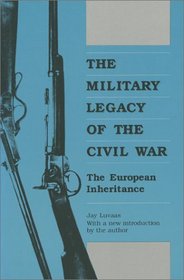If you are looking for a fascinating tale of the men who fought in the American Civil War and the battles they fought in, this isn't it. Instead the author provides us detailed information on how the European military, especially the British, French and Germans, observed and rated America's greatest conflict.
Each nation of foreign observers saw our conflict in a different light, sometimes not to our credit. What they were mostly interested in was our use of railroads, large masses of volunteers, fortifications and how our generals utilized their artillery and cavalry assets. The observers also considered how this information might be used to sustain or revamp military concepts in Europe.
After several chapters describing each nation's foreign observers and their actions, the author then devotes several chapters describing how the observers' information was used by their military.
While this is interesting to the dedicated Civil War student, probably the finest section was the last. Here the author describes how the European military, especially the British, re-evaluated the American Civil War toward the end of the century and discovered that the Civil War and its leaders were much more important than originally thought. This trend continued past the end of World War I and into World War II.
Each nation of foreign observers saw our conflict in a different light, sometimes not to our credit. What they were mostly interested in was our use of railroads, large masses of volunteers, fortifications and how our generals utilized their artillery and cavalry assets. The observers also considered how this information might be used to sustain or revamp military concepts in Europe.
After several chapters describing each nation's foreign observers and their actions, the author then devotes several chapters describing how the observers' information was used by their military.
While this is interesting to the dedicated Civil War student, probably the finest section was the last. Here the author describes how the European military, especially the British, re-evaluated the American Civil War toward the end of the century and discovered that the Civil War and its leaders were much more important than originally thought. This trend continued past the end of World War I and into World War II.




